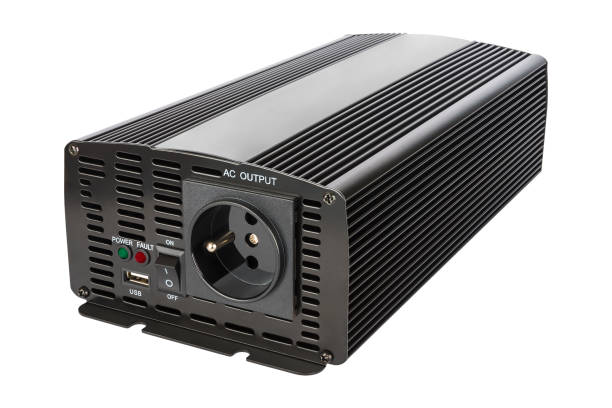In today’s fast-paced world, the need for portable power solutions is more essential than ever. Whether you’re camping in the wilderness, traveling in an RV, or simply need a backup power source at home, 12V power inverters have become a vital tool. This blog explores the fundamentals, advantages, applications, and considerations when choosing a 12V power inverter.
What is a 12V Power Inverter?
A 12V power inverter is a device that converts direct current (DC) from a 12V battery into alternating current (AC) that can power household appliances and electronics. This conversion is crucial because most electronic devices require AC power to operate, while batteries provide DC power.
Types of 12V Power Inverters
There are two main types of 12V power inverters: modified sine wave inverters and pure sine wave inverters.
Modified Sine Wave Inverters
Modified sine wave inverters are more affordable and sufficient for many applications. They provide a waveform that approximates a sine wave but is not as smooth. This type of 12V power inverter is suitable for running simple devices like lights, fans, and some small appliances.
Pure Sine Wave Inverters
Pure sine wave inverters produce a smooth and consistent waveform that closely resembles the power supplied by the electrical grid. This makes them ideal for more sensitive electronics, such as computers, medical devices, and high-end audio equipment. While they are generally more expensive, a 12V power inverter of this type ensures better performance and longevity for your devices.
Advantages of Using 12V Power Inverters
Portability: One of the biggest advantages of 12V power inverters is their portability. They can be easily transported and used in various settings, making them perfect for outdoor activities.
Versatility: A 12V power inverter can power a wide range of devices, from small electronics like smartphones to larger appliances like microwaves and refrigerators.
Convenience: Having a 12V power inverter allows you to use your devices wherever you are, without relying on access to wall outlets.
Backup Power: In case of power outages, a 12V power inverter can serve as an essential backup power source, keeping critical devices operational until the power is restored.
Applications of 12V Power Inverters
Camping and Outdoor Activities
For camping enthusiasts, a 12V power inverter can be a game changer. It enables you to power lights, cookers, and even charge your devices while enjoying nature. Many campers find it invaluable for running small appliances that enhance their outdoor experience.
RV and Marine Use
RVs and boats often rely on 12V power inverters to provide power for various appliances. From entertainment systems to refrigeration, these inverters ensure that you can enjoy the comforts of home while on the road or at sea.
Home Use
In residential settings, 12V power inverters can be used as part of solar power systems. They convert the DC electricity generated by solar panels into AC power, making it usable for household appliances. Additionally, they provide a reliable power source during emergencies.
Construction and Job Sites
For construction workers, a 12V power inverter is invaluable for powering tools and equipment at job sites without a readily available electrical supply. This enhances productivity and ensures that projects can progress smoothly.
How to Choose the Right 12V Power Inverter
When selecting a 12V power inverter, consider the following factors:
Power Rating: Calculate the total wattage of the devices you intend to power. Ensure the inverter’s power rating exceeds this total to avoid overloading.
Type of Inverter: Decide between a modified sine wave and a pure sine wave inverter based on the devices you plan to use. For sensitive electronics, a pure sine wave 12V power inverter is the best choice.
Portability: If you plan to use the inverter on the go, look for a lightweight and compact model that is easy to transport.
Safety Features: Choose a 12V power inverter that includes safety features like short circuit protection, over-voltage protection, and thermal shutdown to ensure safe operation.
Warranty and Support: Opt for brands that offer solid warranties and customer support. This can be a lifesaver in case you run into any issues with your inverter.
Installation and Usage Tips
To maximize the performance of your 12V power inverter, follow these tips:
Proper Installation: Ensure that your inverter is installed in a well-ventilated area to prevent overheating.
Battery Selection: Use a deep-cycle battery designed for high discharge rates to ensure the longevity of your power source.
Regular Maintenance: Check your 12V power inverter regularly for signs of wear or damage. Keeping connections clean and secure can enhance performance.
Know Your Limits: Avoid overloading the inverter. Be mindful of the wattage requirements of your devices and stay within the inverter’s limits.
Conclusion
A 12V power inverter is an essential tool that offers convenience and flexibility for powering devices in various situations, from outdoor adventures to home backup systems. By understanding the types, advantages, and applications of these inverters, you can make informed decisions that meet your specific power needs. Whether you’re an avid camper, an RV enthusiast, or simply someone looking for a reliable backup power solution, investing in a quality 12V power inverter can greatly enhance your experience.
By keeping these tips and considerations in mind, you’ll be well-equipped to choose and use a 12V power inverter that suits your lifestyle perfectly. Embrace the freedom of portable power and enjoy the versatility that a 12V power inverter brings to your life!
